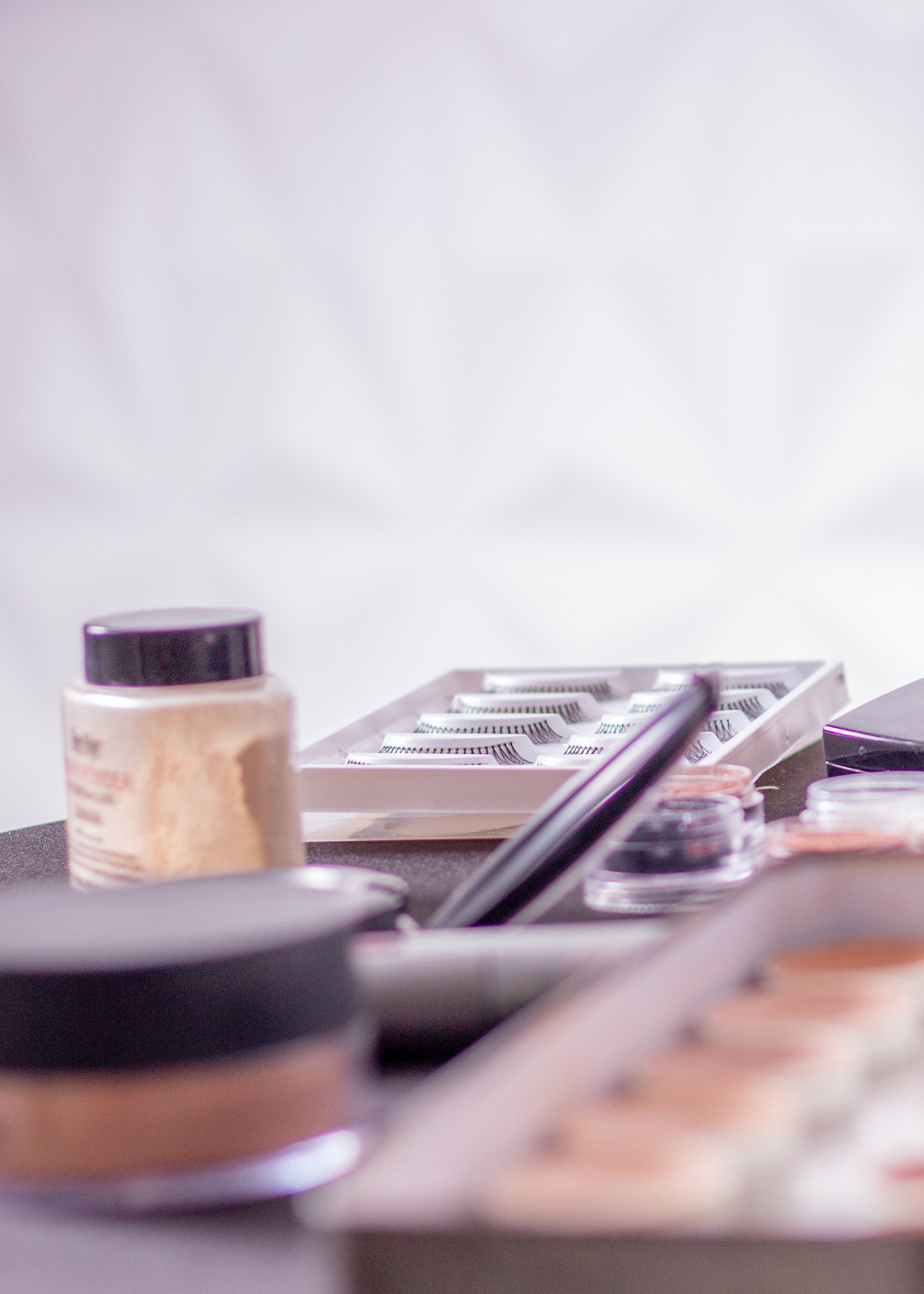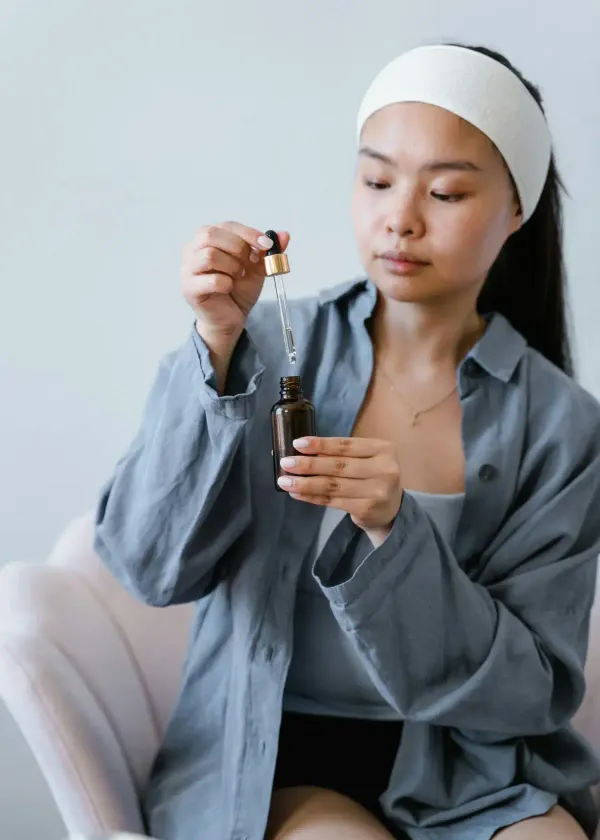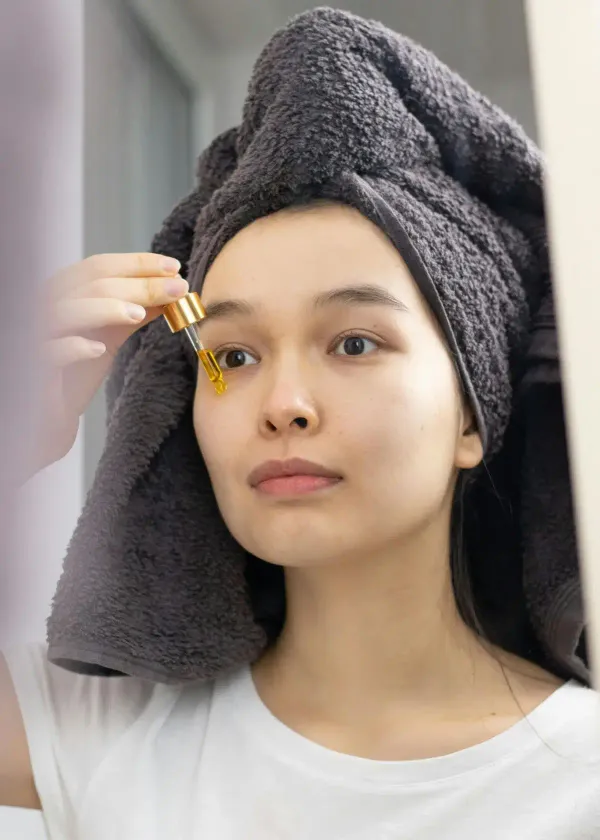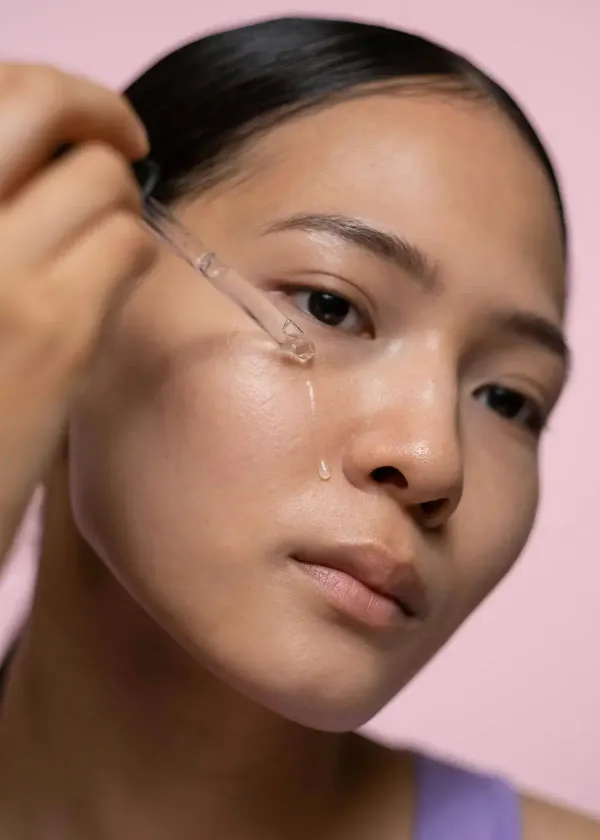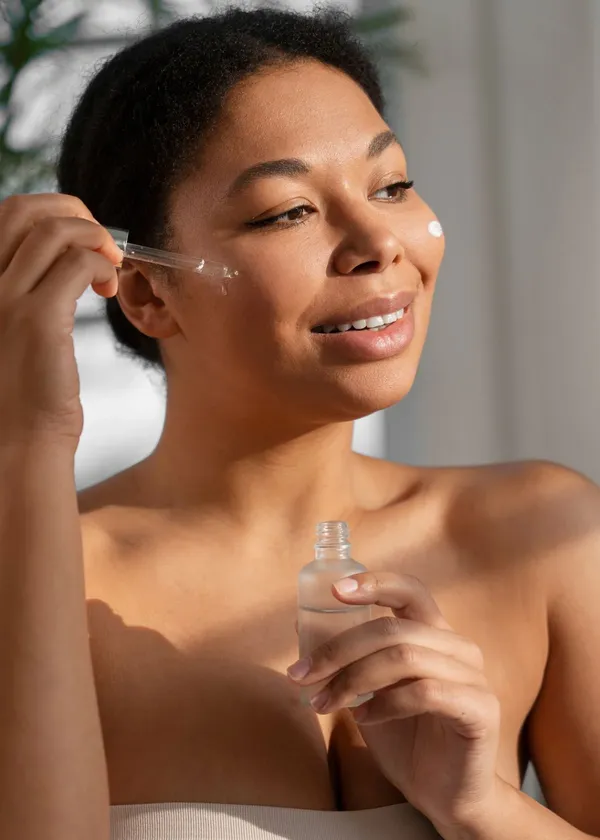"Primer for acne-prone skin? Piece of cake!" said no one ever. But hey, we've all been there – standing in front of a dizzying array of makeup products, wondering if they'll just make our acne worse. Fear not, dear reader! We're about to embark on a fabulous journey to find your perfect primer, so you can finally strut your stuff with confidence.
In this article, we'll reveal the short answer to your primer prayers: non-comedogenic primers that won't clog pores or irritate your skin. But why stop there? We'll also dish out some juicy tips and tricks to ensure your primer game is on point, like how to match your primer with your foundation type and where to find budget-friendly options without sacrificing quality.
So buckle up, buttercup, and let's dive into the wonderful world of primers for acne-prone skin. By the end of this joyride, you'll be laughing in the face of acne and rocking a flawless base that lasts all day long!
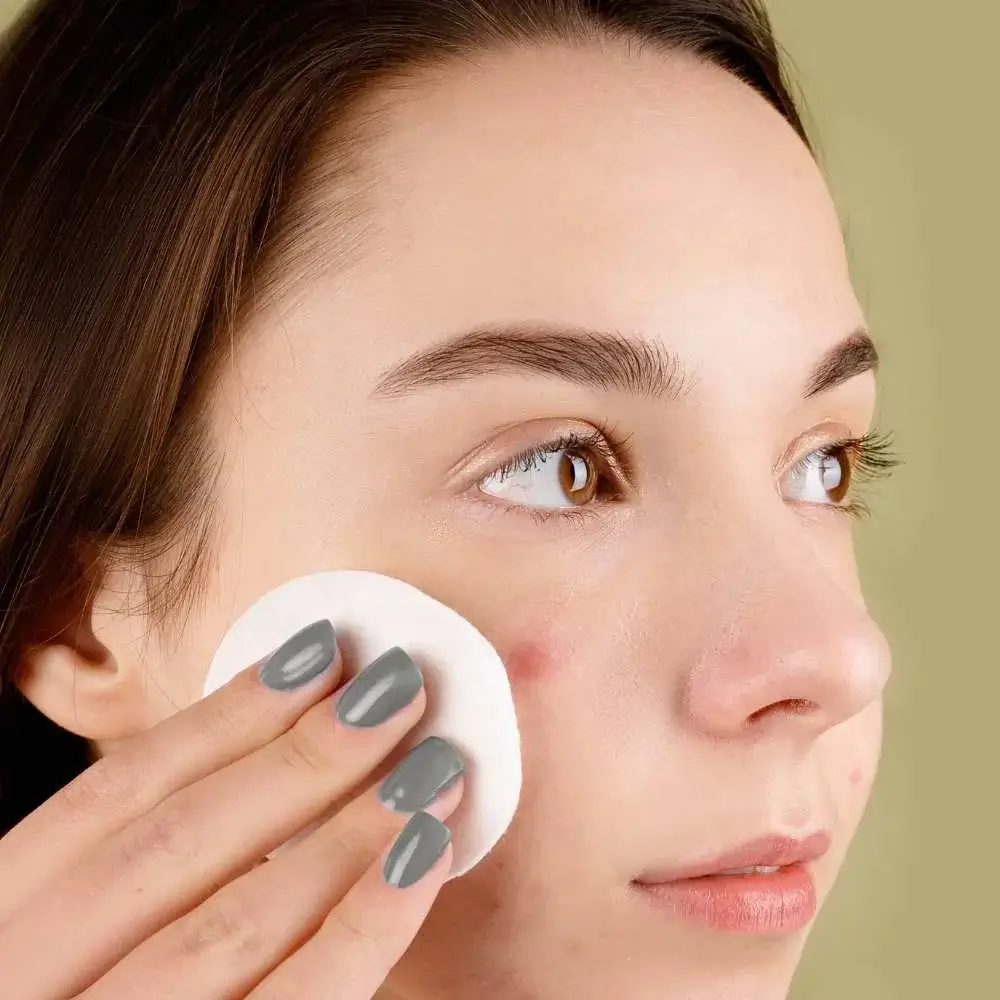
The Ultimate Primer Guide for Acne-Prone Skin
Struggling with acne-prone skin and hunting for the perfect makeup products that won't make things worse? We gotcha! Enter the magical world of primers – your new BFF to create a flawless base, extend the life of your makeup, and even out your skin tone. But, oh dear, so many options! Fret not, we're here to help you find the perfect one for you.
For our acne-prone lovelies, the key is to find a non-comedogenic primer that won't clog your pores or contain any irritating ingredients like alcohol or fragrance. And guess what? You don't need to break the bank on a high-end primer; fabulous drugstore finds can do the trick just as well!
Next up, let's match that primer with your foundation type. Liquid foundation fan? Choose a primer with a similar consistency. Powder foundation devotee? Opt for a light, silicone-based primer that won't mess with your finish or coverage. And for mineral foundation enthusiasts, a mineral-based primer will ensure smooth, even application.
Finding the right primer can be a game-changer for acne-prone skin. Consider your skin type and foundation preferences, and you'll discover a primer that makes your makeup glide on effortlessly and last all day long. Plus, remember there are amazing drugstore options, so you can save those pennies!
Ready to dive into the world of primers? Click on the link for our ultimate guide, covering everything from primer basics to their many uses and types. Whether you want a primer to keep your makeup fresh all day or to create a flawless canvas for foundation, we've got you covered. So go ahead, click that link, and start your primer journey today! Trust us, you'll love it.
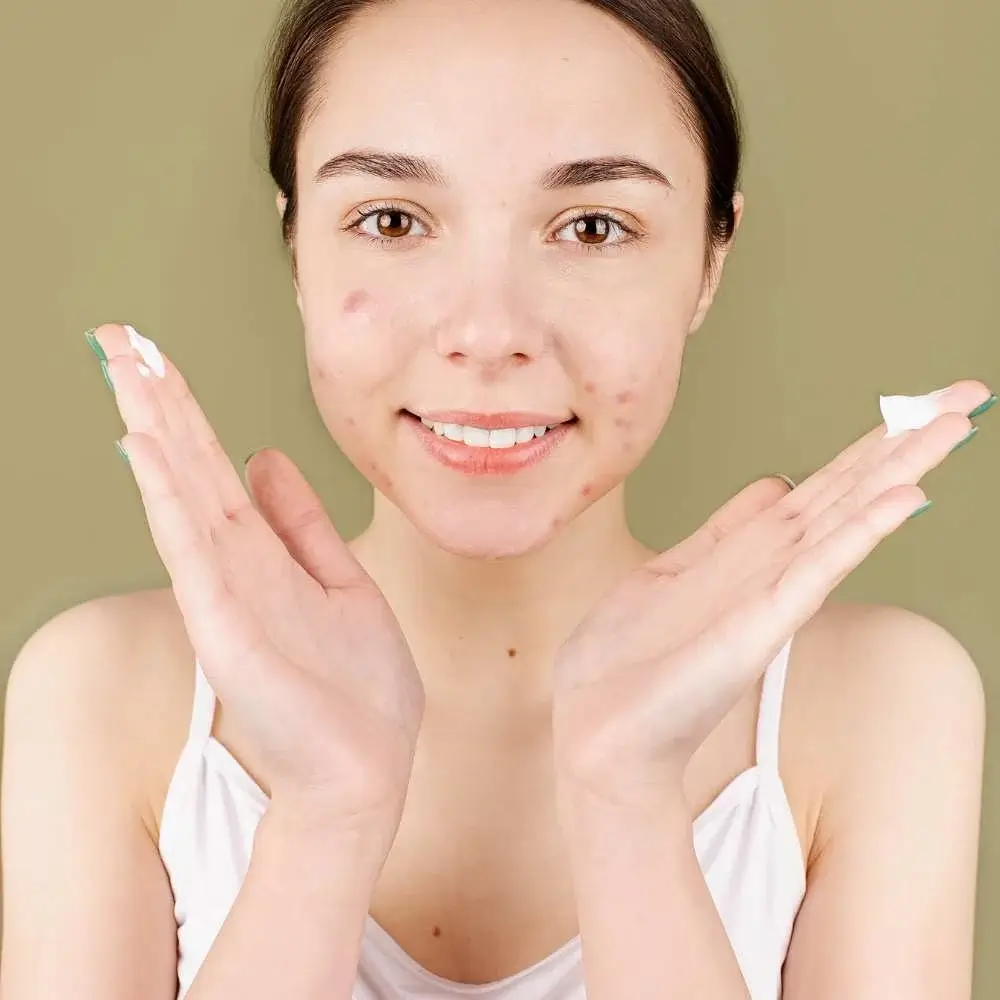
Finding the Perfect Primer for Acne-Prone Skin
If you're on a quest to find the perfect primer for acne-prone skin, you're not alone. Many people with acne-prone skin struggle to find makeup products that won't exacerbate their breakouts. But worry no more, as we're here to help you navigate through different types of primers and find the one that suits your skin concerns.
Types of Primers for Different Skin Concerns
Primers come in various forms, each designed to cater to specific skin types and concerns. Here are some common types of primers to consider when shopping for a primer for acne-prone skin:
Mattifying Primers: These primers are specifically designed to control oil production and keep your skin looking matte throughout the day. They're an excellent choice for those with oily, acne-prone skin, as they can help prevent excess oil from clogging your pores and triggering breakouts.
Hydrating Primers: If you have dry, acne-prone skin, a hydrating primer might be your best bet. These primers are formulated to provide extra moisture to your skin, which can help prevent flakiness and irritation caused by dryness. Look for ingredients like hyaluronic acid or glycerin to ensure your skin stays hydrated and healthy.
Color-Correcting Primers: Color-correcting primers are designed to neutralize redness or discoloration on your skin, making them a great option for those dealing with acne scars or hyperpigmentation. Green-tinted primers are particularly useful for counteracting redness caused by acne, while peach or orange-toned primers can help camouflage dark spots.
Pore-Minimizing Primers: Pore-minimizing primers work by filling in and smoothing out the appearance of enlarged pores, which can be a common issue for those with acne-prone skin. These primers usually have a silicone-based formula, which creates a smooth surface for your makeup to adhere to.
Anti-Acne Primers: Some primers are specifically formulated to combat acne by including ingredients like salicylic acid or tea tree oil. These primers not only help create a smooth canvas for makeup application but also work to actively treat and prevent breakouts.
When searching for the perfect primer for acne-prone skin, it's essential to consider your specific skin concerns and needs. By understanding the different types of primers available and their targeted benefits, you'll be one step closer to finding the ideal primer that will help you achieve a flawless makeup look while keeping your skin healthy and happy.
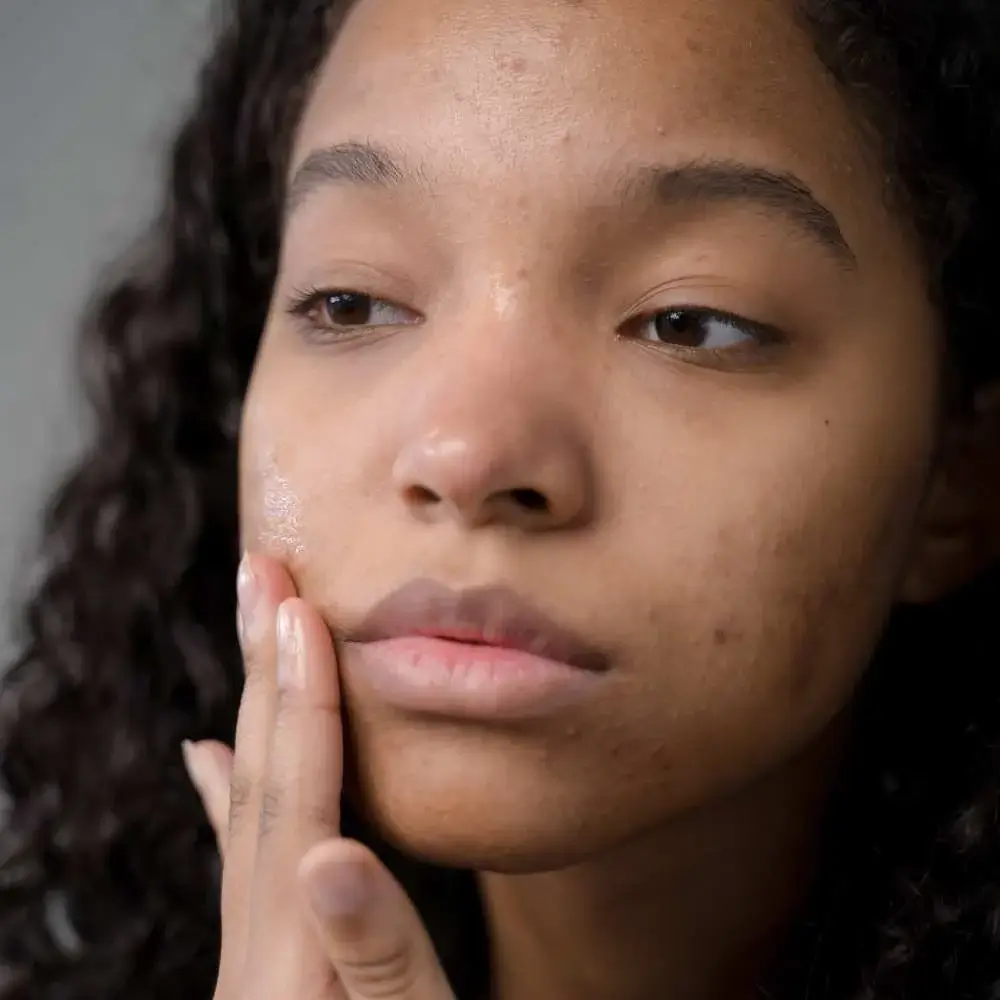
Key Ingredients to Look For
When it comes to finding the perfect primer for acne-prone skin, it's crucial to pay attention to the ingredients. Certain ingredients can help soothe, treat, and prevent acne, while others might do more harm than good. In this section, we'll dive into the essential ingredients to look for in primers for acne-prone skin.
Salicylic Acid
Salicylic acid is a popular ingredient in many skincare products, including primers, because of its ability to unclog pores and exfoliate dead skin cells.
This beta-hydroxy acid (BHA) is oil-soluble, which means it can penetrate deep into your pores to break down excess sebum and debris that may lead to acne.
By including a primer with salicylic acid in your makeup routine, you're not only creating a smooth base for your makeup but also actively treating and preventing breakouts.
Niacinamide
Niacinamide, also known as vitamin B3, is a powerhouse ingredient that offers multiple benefits for acne-prone skin.
It helps regulate oil production, reduce inflammation, and improve the skin's barrier function, making it a valuable addition to any primer formula.
By choosing a primer containing niacinamide, you're giving your skin an extra dose of protection and nourishment.
Tea Tree Oil
Tea tree oil is a natural ingredient with antibacterial and anti-inflammatory properties that can help fight acne-causing bacteria and soothe irritated skin.
Some primers for acne-prone skin incorporate tea tree oil to provide additional acne-fighting benefits while prepping your skin for makeup application.
If you prefer natural ingredients in your skincare and makeup products, a primer with tea tree oil might be the perfect fit for you.
Hyaluronic Acid
Hyaluronic acid is a humectant that attracts and retains moisture, making it an excellent ingredient for hydrating primers.
Even if you have oily, acne-prone skin, keeping your skin hydrated is essential to maintain a healthy skin barrier and prevent further breakouts.
Look for a primer with hyaluronic acid to ensure your skin stays moisturized and balanced throughout the day.
Dimethicone
Dimethicone is a silicone-based ingredient often found in pore-minimizing primers.
It creates a smooth, silky surface on your skin, filling in pores and fine lines to provide an even base for makeup application.
While some people might be concerned about silicones causing breakouts, dimethicone is non-comedogenic, meaning it shouldn't clog your pores or trigger acne.
When shopping for a primer for acne-prone skin, pay close attention to the ingredients list. Look for products that contain acne-fighting and skin-soothing ingredients like salicylic acid, niacinamide, tea tree oil, hyaluronic acid, and dimethicone. By choosing a primer with the right ingredients, you'll not only achieve a flawless makeup look but also support your skin's health and well-being.
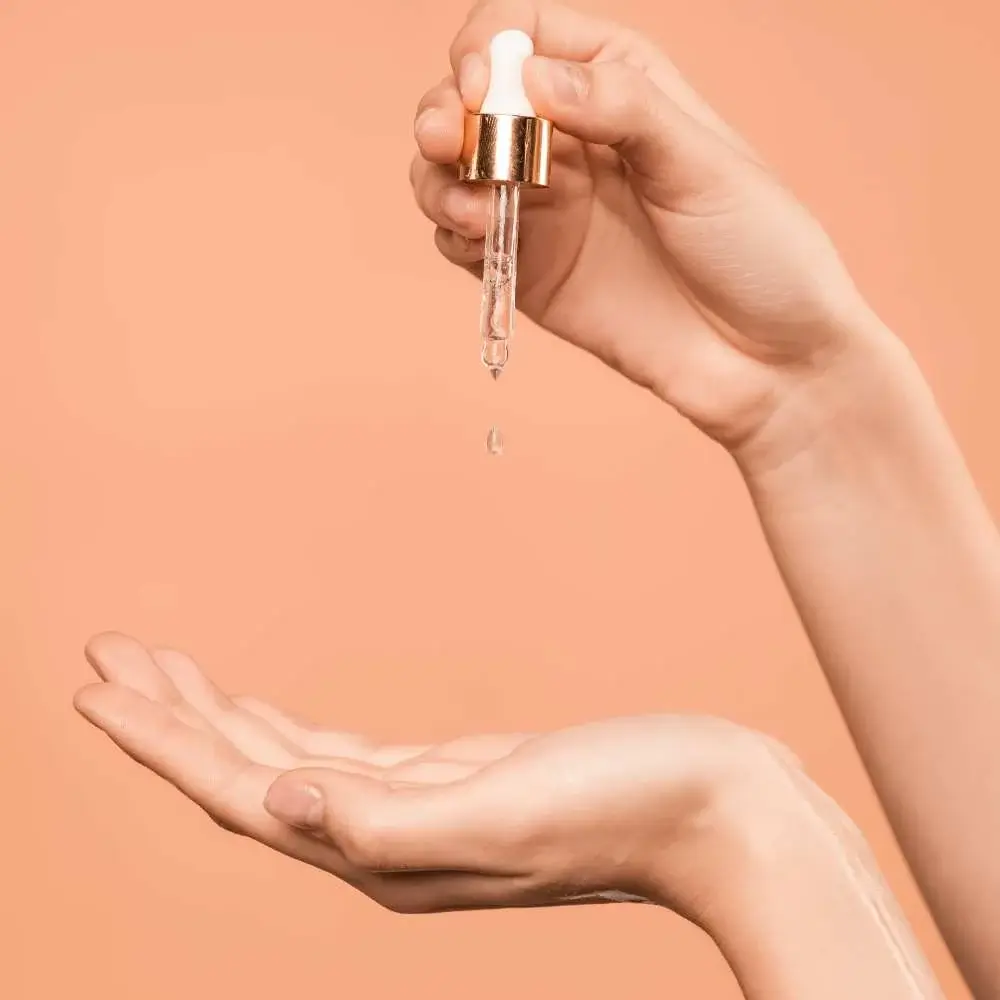
Ingredients to Steer Clear Of
While we've discussed the beneficial ingredients to look for in a primer for acne-prone skin, it's equally important to be aware of the ingredients that could potentially worsen your acne or irritate your skin. In this section, we'll cover some ingredients you should avoid when selecting a primer for acne-prone skin.
Fragrance
Fragrance is a common ingredient in many cosmetics, including primers, but it can cause irritation and sensitivity for those with acne-prone skin.
Synthetic fragrances, in particular, are more likely to trigger adverse reactions.
When searching for a primer, opt for fragrance-free formulas to minimize the risk of irritation.
Alcohol
Alcohol is often added to cosmetic products for its quick-drying properties, but it can be extremely drying and irritating for acne-prone skin.
High concentrations of alcohol can strip your skin of its natural oils, leading to increased oil production and, ultimately, more breakouts.
Make sure to check the ingredients list for alcohol and choose a primer that doesn't contain this potentially problematic ingredient.
Coconut Oil
While coconut oil is praised by many for its moisturizing properties, it is also highly comedogenic, meaning it can clog pores and exacerbate acne.
If you have acne-prone skin, it's best to avoid primers that contain coconut oil or its derivatives, such as caprylic/capric triglyceride.
Lanolin
Lanolin, a natural ingredient derived from sheep's wool, is sometimes used in cosmetics for its emollient properties.
However, lanolin can be comedogenic and cause breakouts in those with acne-prone skin.
Instead of using a primer with lanolin, opt for non-comedogenic alternatives like dimethicone or hyaluronic acid.
Isopropyl Myristate
Isopropyl myristate is a synthetic ingredient used in cosmetics to create a smooth, silky texture.
Unfortunately, it is also highly comedogenic and can clog pores, making it an ingredient to avoid for those with acne-prone skin.
Look for primers that use non-comedogenic alternatives to achieve a similar texture without the risk of breakouts.
When shopping for a primer for acne-prone skin, it's crucial to be aware of both the helpful and harmful ingredients. By avoiding products containing fragrance, alcohol, coconut oil, lanolin, and isopropyl myristate, you'll be one step closer to finding the perfect primer that not only enhances your makeup but also supports your skin's health.
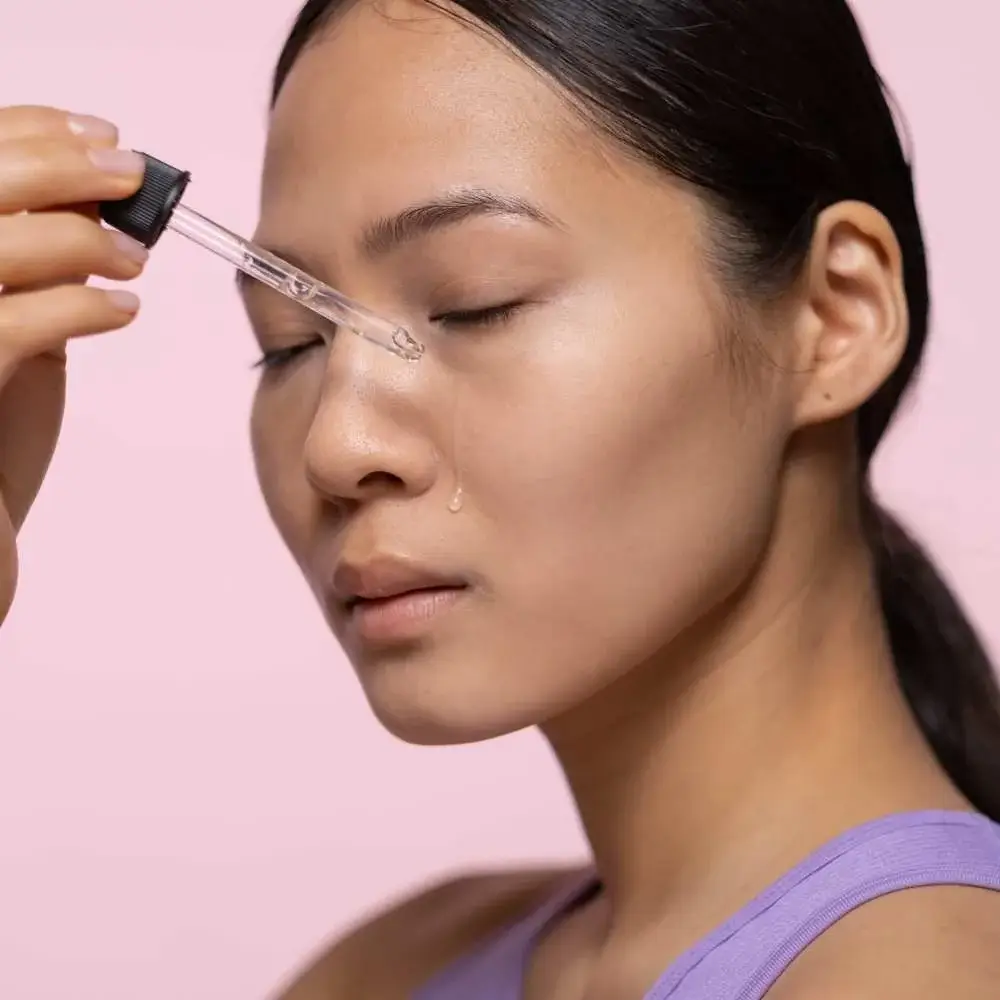
Primer for Acne-Prone Skin: Tips for Flawless Application
Once you've found the perfect primer for acne-prone skin, it's essential to know how to apply it correctly to achieve the best results. In this section, we'll share some tips and techniques for applying primer to ensure a smooth, long-lasting makeup look.
Start with Clean, Moisturized Skin
Before applying any makeup, it's crucial to start with a clean and moisturized canvas.
Gently cleanse your face using a gentle cleanser suitable for acne-prone skin, and follow up with a lightweight, non-comedogenic moisturizer.
Allow the moisturizer to fully absorb before moving on to the next step.
Apply a Small Amount of Primer
A little primer goes a long way, so begin by applying a pea-sized amount to the back of your hand or directly onto your fingertips.
Using too much primer can cause your makeup to look cakey or even slide off throughout the day, so remember that less is more.
Use Your Fingertips or a Makeup Sponge
While some people prefer using a brush to apply primer, using your fingertips or a makeup sponge can provide a more even and natural-looking application.
Warm the primer between your fingers and gently pat it onto your skin, focusing on areas where you have enlarged pores, fine lines, or uneven texture.
If you prefer using a makeup sponge, dab it into the primer and gently press it onto your skin.
Wait for the Primer to Set
Give your primer a moment to set before moving on to foundation or other makeup products.
Allowing the primer to settle into your skin will help create a better base for your makeup and ensure it lasts longer throughout the day.
Apply Makeup as Usual
With your primer in place, you're now ready to apply your foundation and the rest of your makeup.
Remember to use gentle, patting motions when applying foundation over your primer to avoid disturbing the smooth surface you've created.
By following these steps, you'll be well on your way to achieving a flawless makeup look that lasts all day, even with acne-prone skin. With the right primer for acne-prone skin and proper application techniques, you can confidently face the world with a beautiful, smooth complexion.
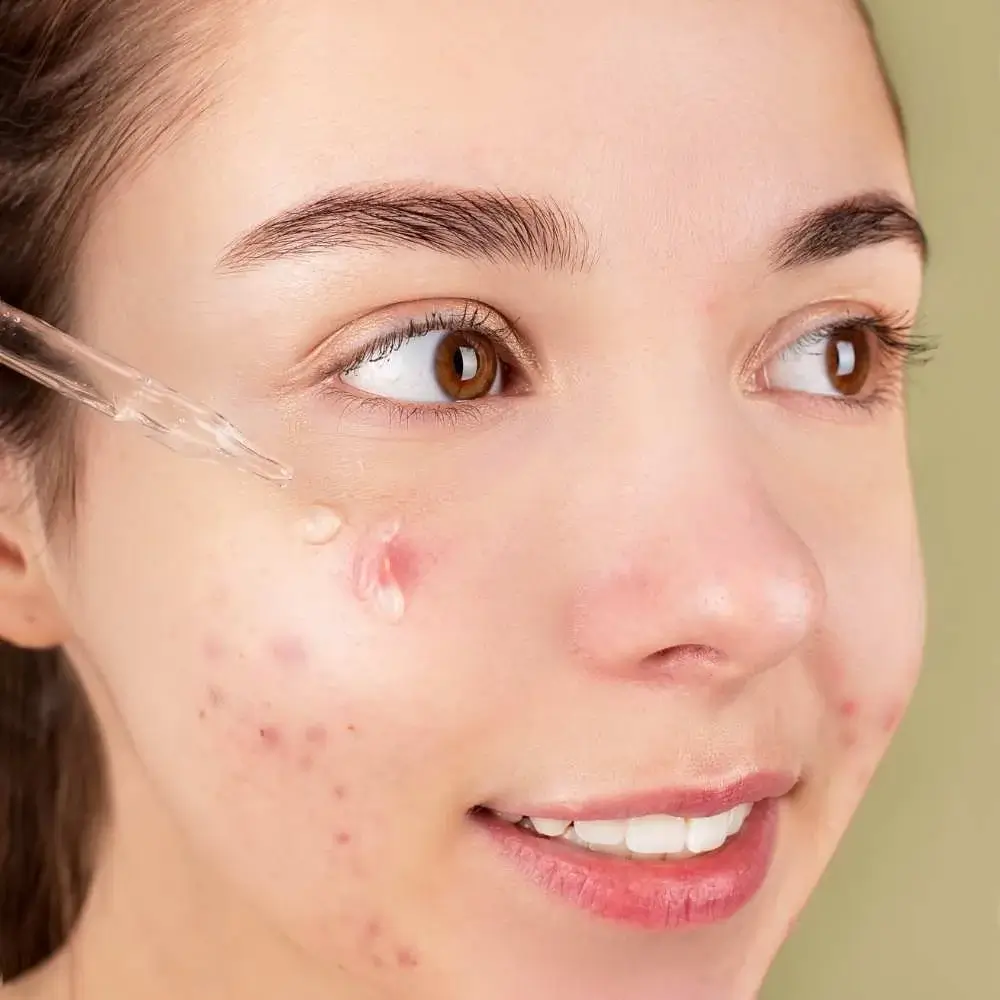
FAQs about Primer for Acne-Prone Skin
Which primer is best for acne prone skin?
The truth is, there's no one-size-fits-all answer to this question. What works like a charm for one person might not be quite as magical for another. However, we can offer some guidance to help you find your perfect primer match. Look for primers that are oil-free, non-comedogenic, and packed with acne-fighting ingredients like salicylic acid, niacinamide, or tea tree oil. Additionally, consider your specific skin concerns, such as oiliness, dryness, or redness, and choose a primer that addresses those issues. With a little experimentation and a dash of patience, you'll soon discover the ideal primer to make your acne-prone skin sing (or, at least, look fabulous)!
Should I wear primer if I have acne?
Primers create a smooth, even surface for your makeup, helping it stay put throughout the day (goodbye, midday meltdown!). Plus, some primers are formulated with acne-fighting ingredients like salicylic acid or tea tree oil, which can help treat and prevent breakouts while you're busy flaunting your fabulous look. The key is to pick a primer that's non-comedogenic, oil-free, and tailored to your specific skin needs. So, go ahead and embrace the power of primer—your acne-prone skin will thank you!
Does primer clog your pores?
While it's true that some primers can potentially clog pores, especially those with heavy, comedogenic ingredients, there are plenty of fantastic options that play nice with your skin. The secret lies in choosing a primer for acne-prone skin that's non-comedogenic, oil-free, and formulated with skin-friendly ingredients. Always check the label and steer clear of pore-clogging culprits like coconut oil, lanolin, and isopropyl myristate. With the right primer in your beauty arsenal, you can enjoy a flawless makeup look without worrying about sabotaging your pores!
How do you protect acne-prone skin from makeup?
First and foremost, always prep your skin by cleansing and moisturizing with gentle, acne-friendly products. Next, enlist the help of a trusty primer for acne-prone skin—one that's non-comedogenic, oil-free, and packed with skin-loving ingredients. It'll create a protective barrier between your skin and makeup, keeping those pesky breakouts at bay. When it comes to makeup itself, opt for non-comedogenic, mineral-based formulas that allow your skin to breathe. And don't forget to remove your makeup thoroughly at the end of the day—your skin needs its beauty sleep, too! With these tips in your toolkit, you'll be well-equipped to enjoy stunning makeup looks without compromising your skin's health.
Can I wear makeup if I have acne?
Absolutely, you can rock makeup even if you have acne! The secret sauce is in choosing the right products and taking care of your skin like a pro. Start by selecting a primer for acne-prone skin that's non-comedogenic, oil-free, and infused with acne-fighting ingredients. This will create a smooth canvas for your makeup and help prevent any unwanted breakouts. When shopping for makeup, opt for lightweight, non-comedogenic, and mineral-based formulas that won't clog your pores or irritate your skin. And remember, always cleanse and moisturize before and after wearing makeup to keep your skin healthy and happy. With the right approach, you can confidently flaunt your favorite makeup looks without aggravating your acne. So go ahead, unleash your inner makeup artist and let your creativity shine!
Read our article about best drugstore bronzer here!


